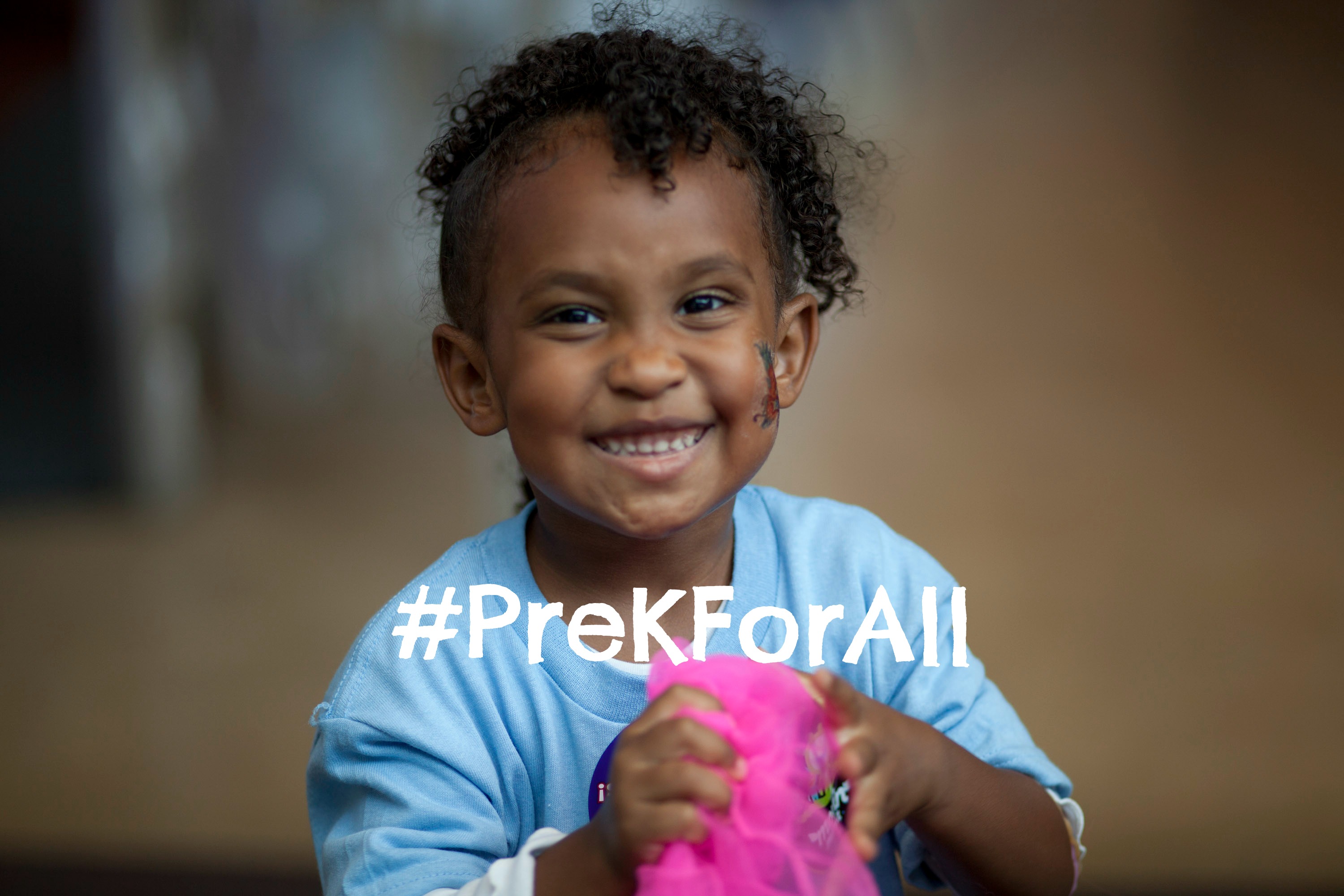

Virginia has already made a significant investment in early learning. The president’s recent proposal to expand preschool is poised to expand on a system we already have in place. And good news for Virginia, this proposal is more than just preschool. It also seeks to expand our network of evidence based home visiting, high quality child care and Head Start.
Get the facts on how Virginia could benefit from the preschool proposal below. And join us on Twitter (@Vakids) to show your support for preschool by using the hashtag #PreKForAll.
1. The president’s proposal seeks to expand access to preschool for low- to moderate- income four year old children (those in families up to 200% poverty- $38,180 gross yearly income for a family of three).
* Virginia currently provides opportunities for preschool to low to moderate income four year olds through the Virginia Preschool Initiative (VPI). This initiative has been in place since 1996 and has steadily grown to serve over 17,000 four year olds statewide.
* Only 6 out of 10 disadvantaged four year olds have access to high quality preschool in Virginia. The proposed state and federal preschool partnership could expand access to 14,558 low income four year olds statewide.
– VA: Total four year olds below 200% poverty= 39,686
– VA: Four year olds enrolled in Head Start and VPI= 25,128
– VA: Four years old poised to benefit from additional access to preschool= 14,558; 37% of low to moderate income four year olds
2. The proposal would require Virginia to meet quality benchmarks linked to better outcomes for children. Virginia is poised to expand access to preschool and improve quality in both public and private early care settings by participating in the STAR Quality Rating and Improvement System and aligning teacher background requirements in public schools, private child care and Head Start.
* Virginia already does a fairly good job of meeting quality benchmarks in its VPI programs, meeting six out of 10 quality benchmarks according to the National Institute for Early Education Research.
* Two initiatives approved by the legislature this past year will help put Virginia on the path to linking quality and outcomes. The pilots to test a kindergarten readiness assessment and the Department of Education’s efforts to launch a longitudinal data system could help Virginia better evaluate its current investment in pre-k.
3. This proposal helps to build on the early care system by continuing to invest in Head Start. Currently, over 15,900 children are enrolled in Early Head Start and Head Start statewide- 2,700 infants and toddlers in Early Head Start and 13,200 preschoolers in Head Start. With the impact of sequestration on Head Start programs, Head Start grantees across the state are exploring strengthening their partnerships with VPI and child care programs to continue to serve the children that would be cut from Head Start.
* The collaborative components of the plan, especially Early Head Start-Child Care Partnership program are encouraging. Virginia is poised to benefit from additional opportunities to expand high quality early care in other care settings than preschool by taking advantage of our STAR Quality Rating System, Infant and Toddler Specialist Network and our infant mental health initiatives.
4. Additional expansion of evidence-based home visiting will build on Virginia’s existing network of evidence based home visiting and could expand access to home visitors and mentors to connect low-income families to community resources and educational support. These federal funds help to strengthen the existing statewide network.
For more information on early care and education please contact Emily at emily@vakids.org or (804) 649-0184 ext. 34.
Read More Blog Posts